Apple’s guidance for the last three months of the year managed to push down shares on Thursday, even though it beat expectations for the last quarter. The technology goliath said revenue in the December quarter will be flat from a year earlier.
Now, Apple has plenty of its own problems—the sluggish recovery in China, along with tougher competition from Huawei, and worries about whether enough people will upgrade to the new iPhone.
Its sales of high-margin Mac computers are struggling, though the growth of artificial intelligence and the potential to run AI programs from your desktop may give them a boost at some point.
But the real question is whether Apple’s dull outlook for the Christmas shopping season holds true for other companies. Retailers’ typically hire extra staff for the holidays and that seems particularly low this year, even if Amazon is bringing in more associates than in 2022 and Target is adding the same number of seasonal employees.
Investors, for their part, seem to have cheered up. Stocks have advanced for a few days in a row, and it isn’t just the Magnificent Seven (of which Apple is one). The week has brought good news—the Federal Reserve is widely seen as having finished the most aggressive round of interest-rate hikes in decades, and bond yields have fallen back from recent highs.
The key issue all year has been whether the big gains made by those select few technology stocks that have carried the market this year will continue and fan out to others. If that’s finally happening, the fourth quarter will be fine.
—Brian Swint
*** Join MarketWatch investing columnist Beth Pinsker today at noon when she speaks with Meena Seshamani, deputy administrator and director of the Center for Medicare, about open enrollment, and answers all your questions about changes for this year and what lies ahead for the future. Sign up here.
***
Sales Fall for Fourth-Straight Quarter on China Weakness
Apple
notched a fourth consecutive quarter of declining sales compared with the same period last year including a decline in China, which is undergoing an economic slowdown and where Apple faces increased domestic competition and government scrutiny.
- Apple’s fiscal fourth-quarter sales dipped 1%, to $89.5 billion, though net income of about $23 billion beat expectations. The company’s sales in greater China, its third largest market, fell 2.5% to $15.1 billion and missed estimates. Chinese rival Huawei introduced a new phone.
- Revenue from iPhone sales rose 3% to $43.8 billion. Apple introduced its latest nearly $1,000 model in the quarter. U.S. smartphone shipments fell 19% in the September quarter, including an 11% drop for the iPhone, The Wall Street Journal reported, citing Counterpoint Research.
- Mac revenue dropped 33% to $7.6 billion in the quarter, and iPad revenue dropped 10% to $6.4 billion. Apple earlier this week introduced new Mac Pro laptops with its third-generation chip, but sales for those products won’t show up until the current quarter.
- Apple’s services revenue was the biggest positive surprise in the report, rising 16% to $22.3 billion. After the quarter ended, Apple raised prices for Apple TV+, Arcade, and News+.
What’s Next: Investors were hoping to find reasons for optimism in Apple’s December quarter. But along with competition from Huawei in China, there are growing concerns about Americans reining in spending—and reports the iPhone 15 faces ongoing component shortages.
—Eric J. Savitz and Liz Moyer
***
Sam Bankman-Fried Guilty of Criminal Fraud, Jury Finds
A jury took just a few hours to find one-time crypto magnate Sam Bankman-Fried guilty of criminal fraud, marking the dramatic end to a monthlong trial in Manhattan federal court. He was found guilty on all seven counts after just a few hours of deliberation.
- The 31-year-old founder and former CEO of the defunct crypto exchange FTX had pleaded not guilty to the seven counts including fraud and money-laundering. FTX collapsed one year ago, losing billions of dollars of customers’ money.
- Since FTX collapsed in November 2022, industry executives have argued Bankman-Fried’s actions amounted to a run-of-the-mill fraud rather than something endemic to cryptocurrency.
- The trial ended without major revelations that would affect crypto prices. Indeed, Bitcoin has rebounded sharply this year, more than doubling to about $34,900. Its price has been bolstered by interest in the likely launch of a Bitcoin exchange-traded fund.
What’s Next: If the convictions are upheld, Bankman-Fried could be handed more than 100 years in prison when sentenced in March. While the guilty verdict closes a chapter on the industry’s biggest fraud, it may only heighten pressure on Washington to ensure it doesn’t happen again.
—Liz Moyer and Joe Light
***
Starbucks Unveils Strategic Plan Under New CEO
Starbucks
CEO Laxman Narasimhan unveiled the coffee retailer’s “Triple-Shot Reinvention Strategy” at an investor event in New York, eight months after he took the helm from former CEO Howard Schultz. He described it as relying on the foundation of the plan Schultz laid out in September 2022.
- Triple-Shot will focus on three areas intended to propel the next stage of the company: improving the store experience, expanding its digital capabilities, and expanding its global presence. The plan also aims to increase efficiency through a $3 billion cost-savings plan and reinvest in employees.
- Starbucks sees long-term revenue growth of 10% or greater. Long-term guidance issued in 2022 called for revenue to grow annually between 10% to 12% through 2025. Same-store sales will grow by at least 5%, Starbucks said Thursday. That’s lower than last year’s forecast of between 7% and 9%.
- The company repeated its aim to operate 55,000 stores by 2030, an increase of 45% from its current tally of about 38,000. Most of these new store openings will be outside North America, it said.
- Triple-Shot aims to streamline baristas’ work, from overhauling inventory recording and other behind-the-scenes work to opening stores with new layouts, such as drive-through only or delivery only.
What’s Next: It will also spend $1 billion on employee-related initiatives such as technology in stores, higher wages, and improved scheduling. By 2025, Starbucks plans to double hourly incomes compared with 2020 through more hours and higher wages.
—Sabrina Escobar
***
Online Travel Sites Beat Expectations on Summer Travel Surge
Two online travel planning and booking sites reported stronger-than-expected third-quarter results, boosted by resilient consumer spending on summer travel.
Booking Holdings
and
Expedia Group
both reported gains in gross bookings and booked room nights, two key measurements of health for travel stocks.
- Booking’s revenue rose 21% to $7.34 billion. Gross travel bookings, which is the dollar value including taxes and fees of travel services booked minus cancellations, rose 24%, and room nights booked rose 15% from last year.
- Expedia’s revenue rose 9% to a record $3.9 billion, while gross bookings rose 7% to $25.7 billion, and booked room nights rose 9%. Expedia also announced a $5 billion stock buyback.
-
Separately, a day earlier, home-sharing site
Airbnb
reported better-than-expected third quarter results, with revenue rising 17.8% in the third quarter, and nights and experiences booked rising 14% from the prior year.
What’s Next: Expedia said on a conference call after the earnings report came out that fourth-quarter gross bookings growth could be in line with third quarter levels, given the uncertainty of the geopolitical environment and its potential effect on travel.
—Liz Moyer
***
Retail Group Expects Holiday Shopping Growth to Moderate
Holiday shoppers are expected to push sales this season to record highs but the growth of sales compared with last year is expected to moderate from the big gains in 2021 and 2022, returning to the average annual pace seen before the Covid-19 pandemic disrupted shopping habits, the National Retail Federation (NRF) said.
- The trade group predicts holiday sales will rise between 3% and 4% from last year’s season, reaching between $957.3 billion and $966.6 billion. That is below 2022’s 5.4% annual gain and 2021’s 13.5% rise. NRF CEO Matthew Shay said consumers are becoming more cautious.
-
The NRF’s forecast encompasses sales made between Nov. 1 and Dec. 31. Actual holiday sales could be higher for retailers when accounting for purchases made during their sales events held in October.
Amazon,Target,
and
Walmart
all had promotions last month. - From 2010 to 2019, holiday sales rose an average 3.6% a year excluding car, gas, and restaurant sales, the NRF said, not adjusted for inflation. Higher interest rates this year, dwindling household savings, rising credit card balances, and the resumption of student loan payments could crimp consumer spending.
- Target CEO Brian Cornell told CNBC on Thursday that shoppers are tempering their spending, buying fewer groceries in addition to cutting back on discretionary items. NRF said shoppers plan to spend an average of $875 on holiday items.
What’s Next: NRF said to meet demand during the holidays, it expects retailers will hire between 345,000 and 450,000 seasonal workers, in line with the 391,000 they hired last year.
—Sabrina Escobar and Liz Moyer
***
Do you remember this week’s news? Take our quiz below to test your knowledge. Tell us how you did in an email to [email protected].
1. Even before earnings were announced, Apple held an event earlier this week to unveil which of the following?
a. Updated AirPods Max headphones, now available in glow-in-the-dark colors
b. A light-up AirTag
c. An upgraded Watch with biodegradable wrist band
d. A third-generation chip for MacBook Pro laptops
2.
Walt Disney
is set to buy the 33% of this streaming platform it doesn’t already own from
Comcast
after the two come to an agreement on its value. Disney will pay at least $8.61 billion for which of the following:
a. Roku
b. Vimeo
c. Hulu
d.
Fubo
3. A Missouri jury found the National Association of Realtors and large residential brokerages colluded to keep home sales commissions artificially inflated. NAR vowed to fight the verdict on appeal. How much in damages did the jury award the homesellers in the class action lawsuit?
a. $1 billion
b. $1.8 billion
c. $2 billion
d. $2.8 billion
4. The National Retail Federation sees holiday sales reaching a new record this year, though growth is expected to moderate from gains in 2021 and 2022. Holiday shoppers are expected to do which of the following?
a. Look for sales and promotions, which shoppers say are more important to them this year
b. Cut back on buying for themselves
c. Put fewer people on this year’s gift-giving list
d. All of the above
5. Two major amusement-park operators have agreed to merge in a $2 billion transaction that will give the combined company more scale to compete with giants in the industry. Which park operators are merging?
a. Six Flags and
Cedar Fair
b. SeaWorld and Six Flags
c. Hershey Park and Cedar Fair
d. None of the above
Answers: 1(d); 2(c); 3(b); 4(d); 5(a)
—Barron’s Staff
***
—Newsletter edited by Liz Moyer, Patrick O’Donnell, Rupert Steiner
Read the full article here
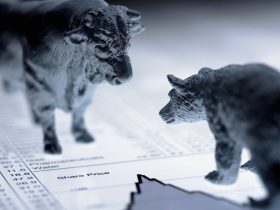
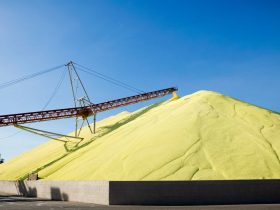



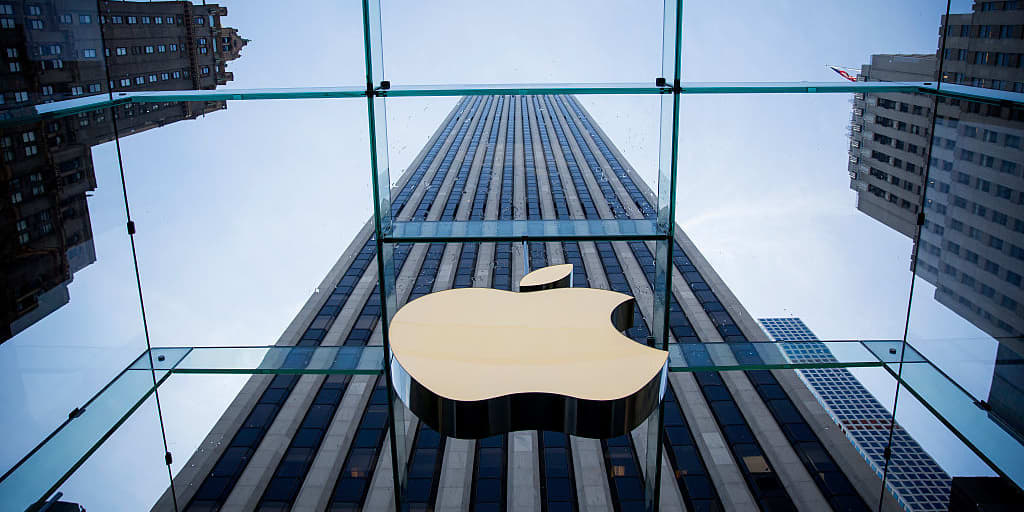

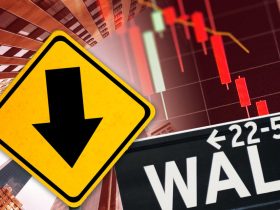
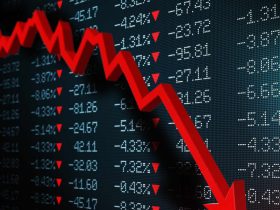
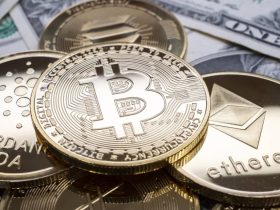

Leave a Reply